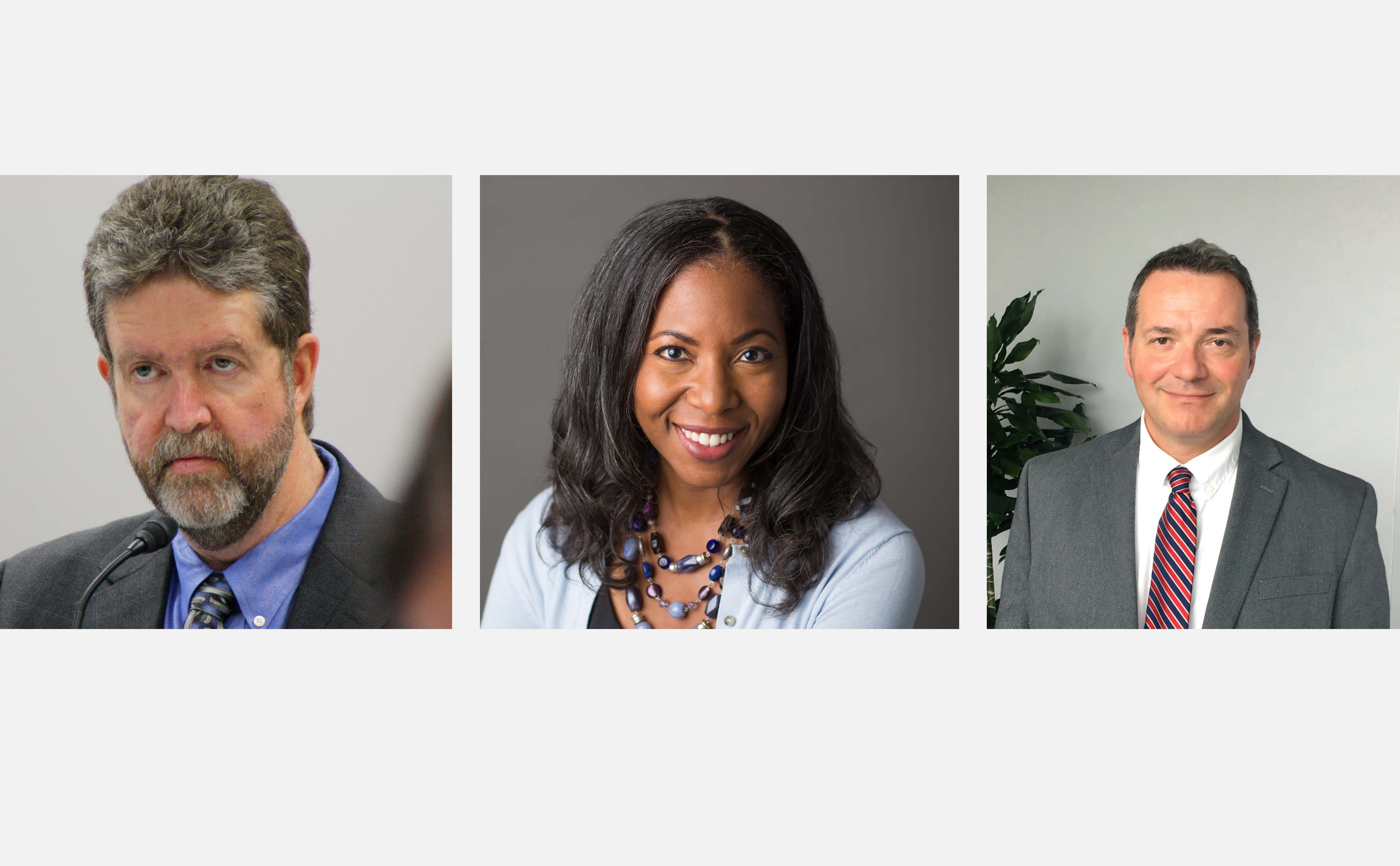EAR Announces Staff Changes, Fall 2018
October 24, 2018
The Division of Earth Sciences welcomes three program directors to the division.
Philip Bennett, program director for Geobiology and Low-Temperature Geochemistry, joined the division from the University of Texas at Austin where his research expertise is in geomicrobiology, microbial geochemistry, aqueous geochemistry and hydrogeology. Recent research projects looked at carbon dynamics in high arctic permafrost soils, the microbial geochemistry of cave formation, geochemical consequences of storm-surge seawater intrusion, and hot spring arsenic biogeochemistry. He received his PhD in Geology from Syracuse University.
Aisha Morris, program director for Education and Human Resources, joins us from UNAVCO, where she served as Research Experiences in Solid Earth Sciences for Students (RESESS) director and education specialist. As the lead for the geoscience workforce development initiative, her primary area of focus was crafting strategies for recruiting, training, and retaining the geoscience workforce of the future. Her graduate and postdoctoral research interests focused on the geology and evolution of volcanic terrains on Earth and other terrestrial planets, contributing to discoveries regarding the presence of water in recent Martian history. Aisha earned her B.Sc. in Geology from Duke University and both her M.Sc. and Ph.D. in Geology and Geophysics from the University of Hawaii at Manoa.
Paul Raterron, program director for Geophysics, came to NSF from a research professor position at SUNY Stony Brook University and Brown University, on a leave-of-absence from the Centre National de la Recherche Scientifique. He has extensive experience in the study of the high-pressure deformation of geologic materials. His work has implications for understanding the dynamics and seismic properties of Earth's interior. He obtained a Ph.D. in Geosciences from the Université Paris-Sud in Orsay, France, and specialized in mineral physics.
If you would like timely news from the Division of Earth Sciences (EAR), subscribe to EAR Express Updates newsletter by sending a blank email to earth-subscribe-request@listserv.nsf.gov. You can unsubscribe at any time by emailing earth-unsubscribe-request@listserv.nsf.gov. Send updates and highlights about your NSF-funded research and education projects to EAR Communication.
The U.S. National Science Foundation propels the nation forward by advancing fundamental research in all fields of science and engineering. NSF supports research and people by providing facilities, instruments and funding to support their ingenuity and sustain the U.S. as a global leader in research and innovation. With a fiscal year 2023 budget of $9.5 billion, NSF funds reach all 50 states through grants to nearly 2,000 colleges, universities and institutions. Each year, NSF receives more than 40,000 competitive proposals and makes about 11,000 new awards. Those awards include support for cooperative research with industry, Arctic and Antarctic research and operations, and U.S. participation in international scientific efforts.
Connect with us online
NSF website: nsf.gov
NSF News: nsf.gov/news
For News Media: nsf.gov/news/newsroom
Statistics: nsf.gov/statistics/
Awards database: nsf.gov/awardsearch/
Follow us on social
Twitter: twitter.com/NSF
Facebook: facebook.com/US.NSF
Instagram: instagram.com/nsfgov



